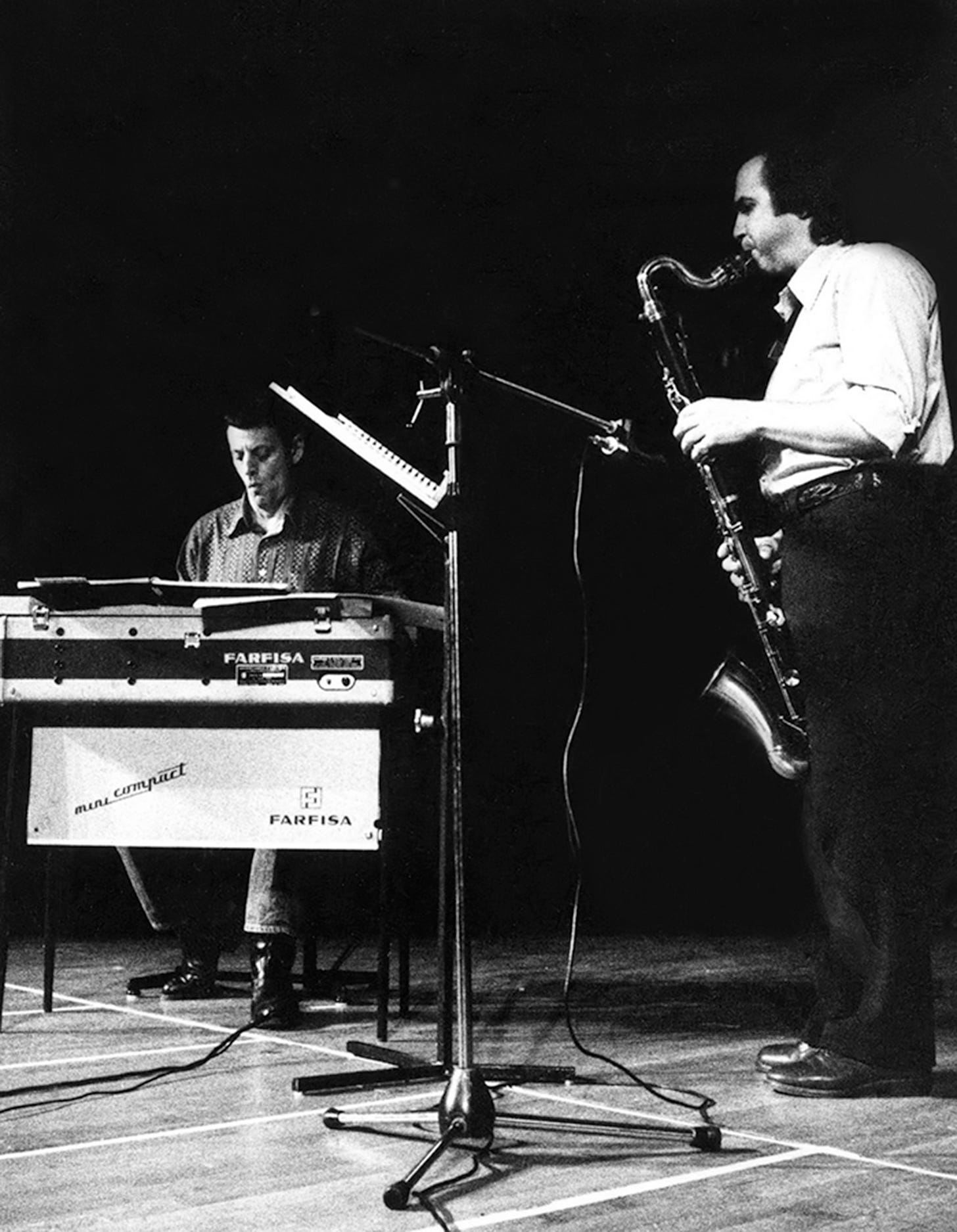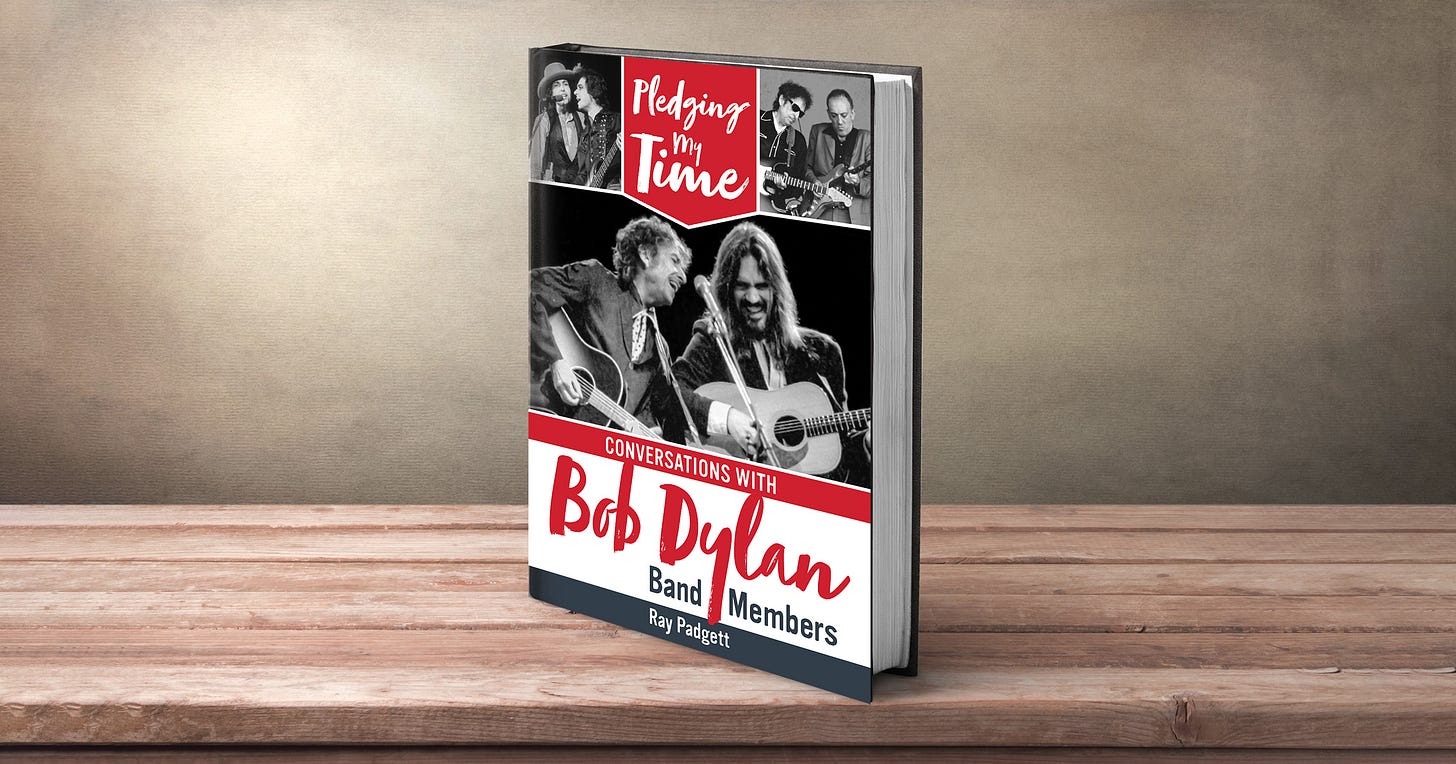An Interview with Bob Dylan's One-Night-Only Sax Player
2003-04-26, Municipal Auditorium, New Orleans, LA
Flagging Down the Double E’s is a free email newsletter exploring Dylan shows of yesteryear. If you’ve found this article online or someone forwarded you the email, you can subscribe here to get a new entry delivered to your inbox every week:
Update 2023: This interview is included along with 40+ others in my new book ‘Pledging My Time: Conversations with Bob Dylan Band Members.’ Find a variety of purchase links (hardcover/paperback/ebook) here.
Bob Dylan rarely has guests sit in. You could probably count the past decade's sit-ins on one hand. As I wrote about here before, I once saw Eric Clapton join Bob’s opening act as a surprise guest. He did not return during the headliner’s set.
But one night in New Orleans, April 26, 2003 to be exact, Dylan did have a guest sit in. A saxophone player, no less; hardly an instrument that’s just going to blend into the background. And not for just a song or two. For the entire set.
That guest was Dickie Landry. He'd never played with Bob before. He's never played with him since. I wanted to know how the hell it happened. So I called him up.
Before we get there, a little about Landry. Though new to the Dylan world, he'd already had quite a career.
Dickie Landry was born, as the song goes, on the bayou. Cecilia, Louisiana, 1938. He gigged around the Lafayette area until the late '60s, when he moved to New York and found himself in the avant-garde art scene. He played for years with Philip Glass and Laurie Anderson, collaborated across the globe with Robert Rauschenberg, hung out with Ornette Coleman and Moondog, and even appears on the Talking Heads album Speaking in Tongues. He contributed to Graceland too, connecting Paul Simon with the zydeco musicians who played on "That Was Your Mother." Hell, the man even played a private concert for Fidel Castro. Marc Broussard, another great Louisiana musician, recently called him "one of my all-time heroes" and an "all-around badass."
He's also a renowned visual artist and photographer. Nowness made a good short film about his many pursuits:
Back to April 26, 2003. Or rather, April 25, since Dickie’s story begins the night before. Bob had just played his first of two Jazzfest concerts in New Orleans. The first was on the fairgrounds - what you probably picture when you picture Jazzfest. The second - Dickie’s gig - was a more traditional setup, in an auditorium. Lucinda Williams opened.
Dickie is a terrific raconteur, and I haven’t seen this story told elsewhere, so I'll turn it over to him. I edited and condensed it slightly for clarity. Just imagine all this with a Louisiana accent.
I have a friend in New Orleans who owns a restaurant. Name is Kerry Boutté, the restaurant Mulate's. He had been friends with Dylan for a while and also the bass player from New Orleans [Tony Garnier]. He invited me and a couple other friends to dinner at the restaurant, and Bob was going to be there.
But, if you know Bob, he doesn't like to meet new people. So the minute Bob walks in, he saw about six of us that he didn't know at all and was about to walk out the door. Tony Garnier said, no Bob, you gotta meet Dickie Landry. He's played with Laurie Anderson, Philip Glass. Bob said, "Well where is he?" I said, "I'm right here, Bob."
He said, "You must have interesting stories. How did you meet Philip Glass?" So I went through the whole story of my meeting Philip. At one point, Philip and I were both plumbers. He said, "Philip Glass was a PLUMBER?" I said, "Yeah, while you were making your money, we were scrambling!"
He's got his manager, Tony Garnier, the drummer [George Recile], me, a date, and somebody else at the table. I started talking about music I'd heard recently. I asked Tony Garnier if he had ever heard Hank Williams III play. He said no. [I told him] the first half of his concert was pure country, and the second part was pure hardcore punk. And I love to play punk. So [during Hank’s show] I ran to my apartment which is about two blocks away from the club and got my horn and jumped on the bandstand and started playing. And there were shouts like, keep going! So I did like an hour and a half set with him.
Bob's saying, how did you follow him? I said, even in punk music there is a structure. The structure goes around once, and in the middle of that you improvise. The band members move, somebody's giving a cue when they're going somewhere. And he said, "Well, my music is very structured. If you could do that, you could play my music." I said, "What do you mean?" He says, "What are you doing tomorrow night? Why don't you bring your horn and come and play?"
My immediate reaction was, I don't know any of your fucking music!
In the meantime, there was an audible gasp at the table from all these managers and people. Like, he just asked somebody to sit in? He never does that! Who is this man? I mean, it was literally out loud, audible. Anyway, we kept talking about bands and musicians. At one point, I turned to Tony Garnier, I said, "Tony, is he serious?" He said, "I don't know, sometimes he changes his mind. Call me in the morning."
So [the next day] I called Tony Garnier at one, two o'clock in the afternoon. I said, Tony, what's up? He says Bob's been up since 11 o'clock this morning asking if I was going to show up at the concert.
I show up at the venue and Tony gives me the list. 16, 17 songs, the keys, watch Bob for the solos and stuff. I'm looking over everything and I don't know the songs. I never played any of them in my life. I'm a great Dylan fan; I never played his music. Philip Glass does not play Bob Dylan songs. Most bands I played with never did either.
Bob walks in. He said, "Are you ready to go on?" I said, "Hell yeah." He said, "Well, take us on stage." So I'm the first one who gets onstage. As I walk onstage, he's got me dead center of the stage, and the band is behind me. I can't see anybody! All I can see is Bob, about ten feet away to my right on piano.
We started playing. The first song, I hobbled through it. Second song, I hobbled through it. Third song, I got it.
The rest of the concert followed. He's changing songs every song. The first two songs were in the setlist. The rest were not. So I'm in completely blind territory. Not a clue what song was coming up. My balls were sweating onstage.
At one point, the light goes down and Tony says, "We got a folk song coming up. I don't think a saxophone would sound good." In my mind, this is the way they get me off the stage. So I go off the stage, I'm standing by the guitars, and the guitar tech runs up to me and says, "What the fuck are you doing offstage man? You're killing it!" I said, "Well, Tony--" He said, "Fuck Tony. As soon as the light goes down, you're going back onstage."
They play two songs, and I go back onstage. The first word out of Bob's mouth was, "Where did you go Dickie?" I said, "Well, Tony Garnier--" He said, "This is MY band. Don't leave the stage again."
After the concert, he and I spent about a half hour together. I had a date with this girl. He asked her, "So what did you think of the concert?" She said, "Oh Bob, it was great." "Well what about the saxophone player?" "He was fantastic!"
I said, "Bob, I want to thank you for letting me perform with you tonight." He looked at me with his steely blue eyes, and he goes, "Any tiiiiime."
2003-04-26, Municipal Auditorium, New Orleans, LA
Thanks to Dickie Landry for sharing his story! Find more from his many artistic pursuits on his website. Though I unfortunately haven’t been able to find any photos of him onstage with Dylan, here’s one with Glass from back in the day:
Update June 2023:
Buy my book Pledging My Time: Conversations with Bob Dylan Band Members, containing this interview and dozens more, at any of these places!




I played piano with Bob one rainy night, and one night only, in St. Louis, Missouri, at the tiny little Majestic Hotel bar. It was 1989. I was playing the blues in C on an old upright there, and Bob sat down next to me and joined in. We slipped out to a back alley through a door right there next to the piano, stood in the rain whilst he smoked a cigarette. Went back in, he brought up the whole band and we played til the wee hours. Love Dickie Landry -- one of the many incredible folks I got to know whilst living in Manhattan in the '80s.
Dickie Landry is one of our Cajun Heroes.. in Lafayette Louisiana.. humble as humble pie.. he knows everybody here and everybody knows him. there's not an ego bone in his body and he's one of the most respected musicians of our area not just because of his illustrious past but because we love him here so much.. he's play music generously with us all.. signed; friend and fan Jerry LeJeune